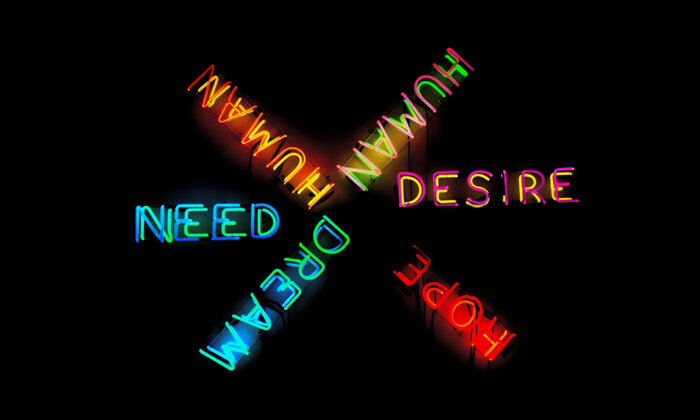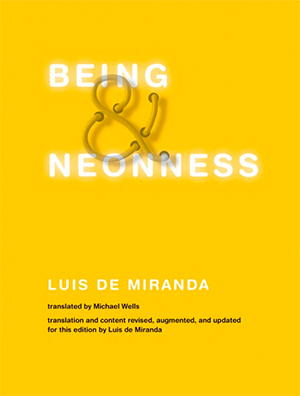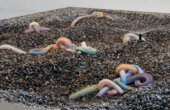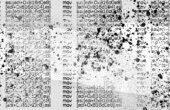Dazzled and Confused: On Light, Democracy, and Making America Complex Again

It was in the cold solitude of the Swiss Alps that Nietzsche proclaimed the death of God. A short time later (in 1905) and not far from there, on the first floor of his Bern residence, Albert Einstein replaced God with a new absolute disguised in scientific parlance: light. As the constant speed of light was slowly accepted as an indisputed universal truth, commercial neon signs, first visible along the streets of Paris in 1912, started to spread around the world, becoming a symbol of hypermodernity and capitalist supremacy. A group of Italian Futurists, who had a flair for what was to come, organized an exhibition in 1912 at the Bernheim Gallery in Paris, inscribing their names in neon on the façade and shouting the slogan “Let’s kill the moonlight!”

One hundred years later, signs made of gas and glass are slowly disappearing from our cities, but most citizens have embraced psychological neonness: We tend to be ambulant slogans obsessed with self-representation, constantly shedding light upon each other in a frenzy of clarification, optimization or self-promotion. Ambiguity is regarded as professionally dangerous, penumbra is socially evil, and opacity suspicious. Of course, we can choose among various possibilities of identification, and eccentricity sells as much as tradition. But, whatever we choose, we inevitably become the superficial identity we’ve labeled, measured, cataloged, digitized, and served up to our audience. “We come to see our identities as those we would like to have or that we want people to see rather than who we really are,” as one psychologist put it, and “we then feel compelled to promote and market these identities.” Being a neon sign — that is, a simplified, unbending and commercial version of ourselves — seems to be the ultimate means of recognition and survival.
Whatever we choose, we inevitably become the superficial identity we’ve labeled, measured, cataloged, digitized, and served up to our audience.
Democracies, too, are tempted by simplistic explanations and slogans of distinction, such as “Yes We Can!” and “Make America Great Again,” and this can be deceiving. “The ends which guide democratic societies are necessarily complex; indeed, complexity of end is just what makes them democratic,” wrote philosopher H. B. Alexander in 1918, in his post-war book “Liberty and Democracy.” If we don’t want the democratic ideal to vanish in a world of cybertransparency and neonness, we should understand that the ultimate goal of democracy, paradoxically, is careful avoidance of any rigid, simplistic, or quantifiable goal. Too many citizens today demand fixed rules for life, and if they continue asking, they will eventually get them in the form of reifying totalitarianism, a world in which beings are things and recipes. Let’s not forget that Goebbels displayed a giant neon sign over Berlin in the 1930s: Ein Volk, Ein Reich, Ein Führer.
One example of current simplistic political end? Aspiring to a homogeneous national population, people who look alike, believe in the same values and share the same roots. A simplistic and eventually dangerous existential end? Security and the elimination of creative risk and experimentation. A simplistic technological end? The smoothness of protocols, ubiquitous computers, and tactile screens everywhere. A simple ideological end? The realism of statistics, analytics, and conformism to dominant values such as competition and mere financial growth.
A century after the end of the First World War, oversimplification — be it political, existential, technological, or ideological — will not make our lives easier but more boring. In the beginning, simplifications can seem tempting in order to escape the natural complexity of life in favor of rules and roles, but soon the induced monotony can become dangerous. Reductionism appears to make all sorts of managing possible, while imagining becomes sterile, as harmless as watching another so-called “revolutionary” TV-series sprawled out comfortably on a couch. Please make America complex again. And not just its shows. Complex does not mean complicated; it means plural, diverse, existentially and politically creative.
Many labeling solutions forget that ambivalence is not a problem to eradicate when it reflects our creative openness to life, our metamorphic becoming. Simplifying and generalizing is only a part of what makes our collective mind work. Many human beings, like Bartleby in Melville’s “Bartleby, the Scrivener: A Story of Wall Street,” would rather not display a simplistic productivist function nor emit constantly the same light bent under the same shape. They are the invisible, ungraspable, incalculable and unmarketable humans. It is not without guilt that they feel multiple inside. The problem with applying labels to our human world and to nature is that the potentially infinite diversity of lifeforms is seen as noise and cacophony. The microcosmic and macrocosmic creative realm — I call it “the Creal” — might be a complex symphony that utilitarianist ears are not fit to listen to, the opaque and infinite possibilities of life.
Oversimplification — be it political, existential, technological, or ideological — will not make our lives easier but more boring.
Some might ask: isn’t creal-complexity another word for new-age postmodernism, often accused of being an ongoing era of sterile relativism, an epoch of tales told by idiots, full of sound, fury and gummy candy, signifying nothing? To them, I would say it is important once in a while to signify no thing, to signify more than just things, as life is not only about objects. Our mercantile system forces many things and beings into neonness: identities, nations, ideas become such gimmicks.
“The earth has become small, and on it there hops the last man who makes everything small,” wrote Nietzche in “Thus Spoke Zarathoustra,” describing the Last Man. “Everyone wants the same.” This was, ironically, meant to be a critical speech, but the crowd receives it as a description of happiness: “Give us this Last Man, O Zarathustra!” To the mob that demands the order of the Last Man, Zarathustra answers: “One must still have chaos in oneself to give birth to a dancing star.” What is this fecund chaos? It is what the Ancient Greeks equated with cosmic creation, a process of actualizations or non-actualizations that is emotional, existential, and cosmological at the same time, an active attention to the evolving truths of eons.
As artists have known for ages, creation is perhaps the only absolute value that cannot engender a totalitarianism. Why? Because a creal flow constantly self-destructs and self-renews. It explodes the glass of reality as we know it.
Luis de Miranda is the author of “Being and Neonness.”



